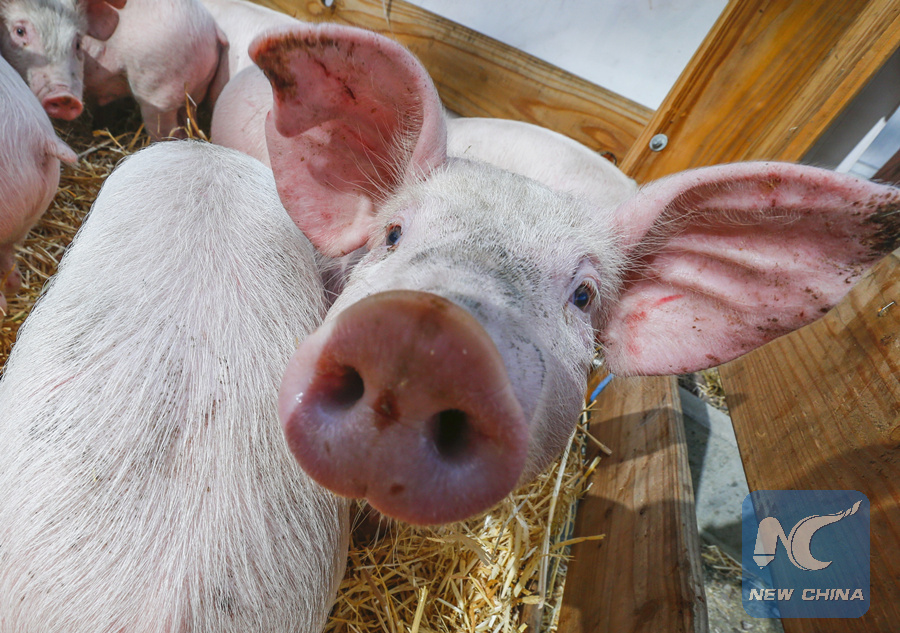
Pigs are pictured outside the European Union agriculture ministers' meeting as farmers protest against low selling prices in central Brussels, Belgium March 14, 2016. (REUTERS FILE PHOTO)
MOSCOW, Jan. 10 (Xinhua) -- Russia intends to challenge in the World Trade Organization (WTO) a move by the European Union (EU) to impose sanctions to the tune of at least 1.39 billion euros (about 1.66 billion U.S. dollars) on it over Moscow's ban on pork imports from European markets.
"We intend to call a special WTO panel before the end of January and ask it to determine the correctness of our actions," said Maxim Medvedkov, head of the Russian Economic Development Ministry's trade negotiations department.
"If it makes such a determination, then the EU from our point of view will lose the right to impose the retaliatory measures," he said in a telephone interview with Russia 24 TV channel Tuesday.
However, Medvedkov added that if the panel found shortcomings in Russia's actions, it "could make corrections or sit down at the negotiating table again."
In January 2014, Russia shut off its market to European live pigs and pork due to an African swine fever (ASF) outbreak in Lithuania and Poland.
This left EU pork exporters, bereft of a key market, with a massive oversupply. Subsequently, the EU complained to the WTO.
In 2017, at the request of the WTO, Russia lifted the import ban on EU countries except for ASF-affected territories.
But imports have still not resumed due to a food embargo imposed by Moscow on the EU in 2014 in response to Western sanctions over Crimea and the Ukrainian conflict.
The EU recently requested the WTO's dispute settlement body (DSB) to allow it to impose sanctions on Russia in the form of taxes on Russian exports.
It asked for sanctions worth 1.39 billion euros, equal to the value of EU pork exports to Russia in 2013, with an annual increase of 15 percent to compensate the ban on imports of live pigs, pork and pork products from the EU, a DSB statement said.
Moscow has expressed "strong disagreement".
In recent years, Russia has invested heavily in pig breeding so that local producers can satisfy most of the domestic demand for pork.

